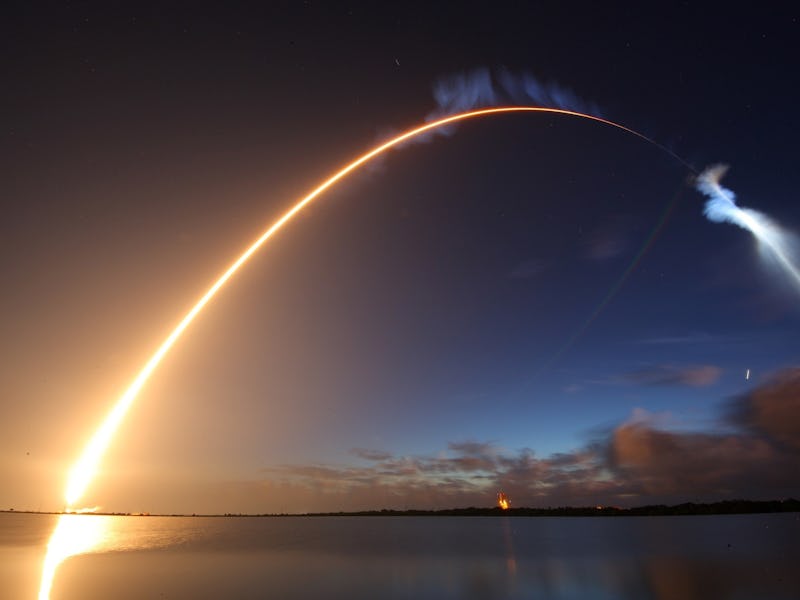U.S. Space Command Just Finished Its War Game, But We May Never Know If It Won
It's high tech and involves space — but Star Wars it isn't.

The United States Air Force just completed its ninth multimillion-dollar war game.
In 2000, the Air Force Space Command began dreaming up threatening, futuristic national security scenarios for its recruits, who were then directed to manage (or, ideally, avert) the crisis. This year — and, really, for the past few years — the focus was on space and cyberspace threats.
Each war game is projected 10 years into the future, and is less about predicting outcomes than analyzing the behavior of personnel under duress. In 2012, the war game included participants from 10 nations. This year’s war game involved over 200 “players” from 27 U.S. agencies and four nations. We’re talking U.S. Strategic Command, the Intelligence Community, NASA, Homeland Security: the whole party.
Despite the name — “war game” — the operation is not quite as sexy as, say, the dogfights in Star Wars or the Battle School of Ender’s Game. Per the Air Force, it’s more “to investigate processes, not to calculate outcomes.”
“War games are warfare models or simulations, not involving actual military forces, and in which the flow of events is affected by and, in turn, affects decisions made during the course of those events by players representing the opposing sides. Fundamentally, wargaming is an experiment in human interaction and is best used to investigate processes, not to calculate outcomes. War games revolve around human decisions. Learning from war games comes both from the experience of making decisions and from the process of understanding why those decisions are made.”
This year’s operations, according to AFSPC, took on the following focus:
“1) identifying ways to increase the resilience of space that includes our Intelligence Community, civil, commercial and Allied partners; 2) exploring how to provide optimized effects to the warfighter in support of coalition operations; and 3) examining how to apply future capabilities to protect the space enterprise in a multi-domain conflict.”
No word, yet, on how the participants fared, which is understandable: If they did well, it’s best to keep the specifics of how and why they did well under wraps; if they failed, it’s also best to keep the details quiet.
Let’s hope that it went OK. Right around when this year’s war game was taking place, an Anonymous-affiliated hacker broke into the European Space Agency and released data. This hack exposed major vulnerabilities. If it’s that easy to take down the ESA, it’s a good thing that the AFSPC is practicing. A coordinated hack on space systems, especially if combined with any actual attacks, would prove devastating.